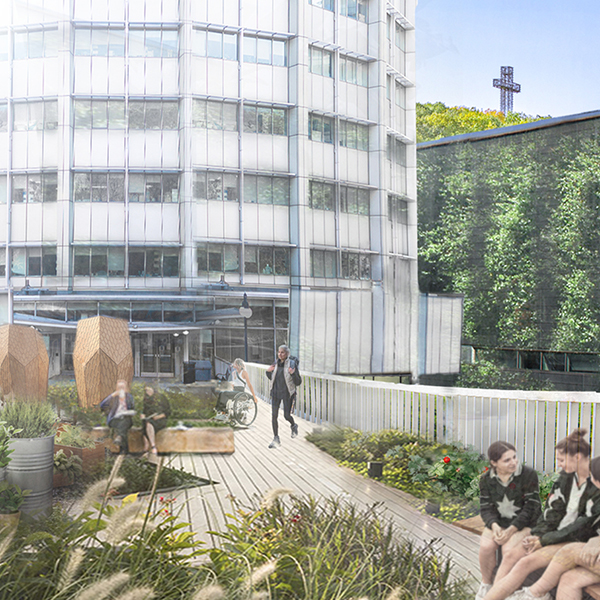Whether it’s the heaps of fresh produce grown at the Macdonald Campus Farm – and used in the University’s cafeterias for years now – or the ban on selling single-use plastic water bottles, sustainability continues to be a major theme at McGill.
It permeates the curriculum and research activities – and campus operations. The University aims to be carbon neutral by 2040 and to improve its sustainability rating from gold to platinum by 2030.
The University’s highest governing body has taken another step to show it’s serious about the subject.
“Without question we do want to be a leader in the community in terms of pushing this ahead. I don’t believe there are many boards at the university level that have a dedicated sustainability committee,” says Ram Panda, chair of McGill’s Board of Governors.
“I’m delighted that the board now has an entity that’s totally dedicated to these issues,” says Panda, MEng’71, MBA’77.
Among its duties, the new committee will track McGill’s progress in reducing its carbon footprint. It will assess key performance indicators received annually from McGill’s administration, examine best practices in the area of sustainability, and make recommendations.
“In the words of Principal Fortier, when she and I talked about it, the real goal of the committee will be to hold the administration’s feet to the fire, and make sure they’re not just talking the talk with respect to sustainability, but they’re walking the walk. And to make sure that they are doing what needs to be done,” says committee chair Stuart (Kip) Cobbett, BA’69, BCL’72, LLD’19.
The committee members include Gerald Butts, BA’93, MA’96, former principal secretary to Prime Minister Justin Trudeau, and Hockey Hall of Fame goaltender and bestselling author Ken Dryden, LLB’73, LLD’18.
“I think climate change is the most important challenge that McGill students, and my children and grandchildren, will face in their lifetimes,” Dryden says.
“McGill is a major institution. It has a responsibility to operate in a sustainable way. But more than that, McGill is a major learning institution. Its role, as it has been for almost 200 years, is to prepare students for the future. The future of these students will be different. What McGill teaches them, with what priority and ambition, and with what impact, needs to be different too.
“This is why I would like to help,” Dryden adds.
Achieving platinum status – the top sustainability rating in the Association for the Advancement of Sustainability in Higher Education’s STARS program – and becoming carbon neutral are ambitious objectives, acknowledges Cobbett, who served as the chair of McGill’s Board of Governors from 2010-2017.
One of the committee’s first objectives, he says, will be to monitor progress and make sure the administration and all aspects of the University are achieving interim steps in order to meet those goals by 2030 and 2040, respectively.
McGill will become carbon neutral through a combination of reducing its carbon dioxide emissions and then finding some carbon offsets, Cobbett says. McGill’s CO2 emissions will be mainly reduced through more efficient heating systems, says Cobbett, who notes that building energy accounts for about two-thirds of emissions.
Air travel is another big component, he adds, with researchers, professors and students flying all over the world. The daily commute to and from campus, and the fleet of vehicles McGill operates also contribute to emissions. “We’ll be monitoring all of that,” Cobbett says. “And the board I would imagine will be setting targets and we will be advising the board as to what those targets should be and then making sure that the administration either meets [them] or has good reasons for not having met them.”
The committee, which will include a student representative, will hold its first retreat in September.
McGill offers more than 70 courses in 15 different programs that have sustainability as a major component or the singular focus, Cobbett says. And Panda points to several initiatives at McGill, including the Sustainability Projects Fund (SPF), which aims to build a culture of sustainability on McGill’s campuses through interdisciplinary projects.
The largest fund of its kind in Canada, the SPF is supported by a student fee – 55 cents per credit – and matched dollar-for-dollar by the administration. It has funded more than 250 projects to date, including the successful “McGill feeding McGill” program, which supplies the University’s Food and Dining Services with produce, beef and eggs from the Macdonald Campus Farm.
The Board of Governors also wants to keep an eye on other institutions that are doing well in the sustainability space, Panda says. “Where we can follow their examples, we will.”


